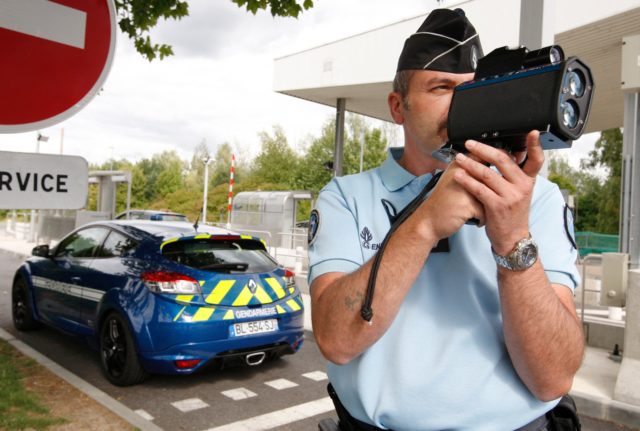City authorities once welcomed operators of app-based rental scooters with open arms, seeing them as an emissions-free alternative to cars and motorbikes. But after a chaotic introduction in 2018, city hall has progressively tightened regulations, creating designated parking zones, limiting the top speed and restricting the number of operators.
Their presence remains controversial, with pedestrians complaining about reckless driving while a spate of fatal accidents has highlighted the dangers of vehicles that can currently be hired by children as young as 12.
READ ALSO: France increases age limit and fines for e-scooters
“They’re dangerous, both for those who use them and for pedestrians,” Francoise Granier, a 68-year-old doctor who voted in the 9th district of the capital, told AFP on Sunday. “And the police never intervene.”
Like her, IT worker Michael Dahan, 50, deplored the state of the capital’s streets, saying: “If it was better regulated, I wouldn’t be against… but you see people behaving in a crazy way.”
Such views are expected to dominate in the 21 voting booths set up around the French capital, with the exercise billed as a “public consultation” rather than a referendum by mayor Anne Hidalgo.
The pro-cycling Socialist leader favours a ban and announced the vote in January to settle the issue of whether they should be allowed.
“I’m committed to respecting the choice of voters, purely and simply,” she told reporters as she voted. “It’s very expensive — five euros for 10 minutes — it’s not very sustainable, and above all, it’s the cause of a lot of accidents,” she added.
The consultation will not affect privately owned electric scooters, of which 700,000 were sold nationwide last year, according to transport ministry figures.
Around 100,000 journeys are completed each day in France on rented e-scooters in around 200 towns and cities.
Watched abroad
Transport Minister Clement Beaune expects the poll to result in a ban, while some operators also privately fear a negative result unless their mostly young users turn out to vote.
“It’s an important consultation that will be watched by a lot of other towns in France and overseas,” Beaune told Europe 1 radio on Wednesday.
He argues that e-scooters are a valuable new transport solution that have replaced up to one in five journeys in Paris that would have previously involved an emissions-producing vehicle.
A total of 1.6 million people are eligible to vote, with turnout expected to be low. Results are scheduled to be released at around 10:00 pm (2000 GMT).
A ban would be a setback for operators such as California-based Lime, Amsterdam-based Dott or Germany’s Tier and could encourage other cities to follow suit.
Montreal banned all electric scooters for rental or private use in 2020, while Copenhagen banned rental versions in 2020 before bringing them back a year later with stricter conditions.
But the operators insist they are still expanding. “Paris is going against the current,” Hadi Karam, general manager for France at Lime, told AFP, citing decisions to increase the number of e-scooters or extend contracts in Washington, Madrid or London.
“There’s a trend towards these vehicles and this trend started in Paris, which was a pioneer,” he said. “Today everyone else is convinced and Paris is deciding to make a step in the other direction. It’s incomprehensible for us.”
The vote has also focused attention on the environmental record of e-scooters amid a debate about whether they help reduce emissions, given that in most cases they replace a journey that would previously have been made on foot or in public transport.
Their batteries also have short life expectancies of around three years on average, according to the transport ministry.
“We think it’s a useful device,” Tony Renucci, head of the Respire charity that works to reduce air pollution, told AFP. “We should preserve it and not ban it.”



 Please whitelist us to continue reading.
Please whitelist us to continue reading.
Member comments